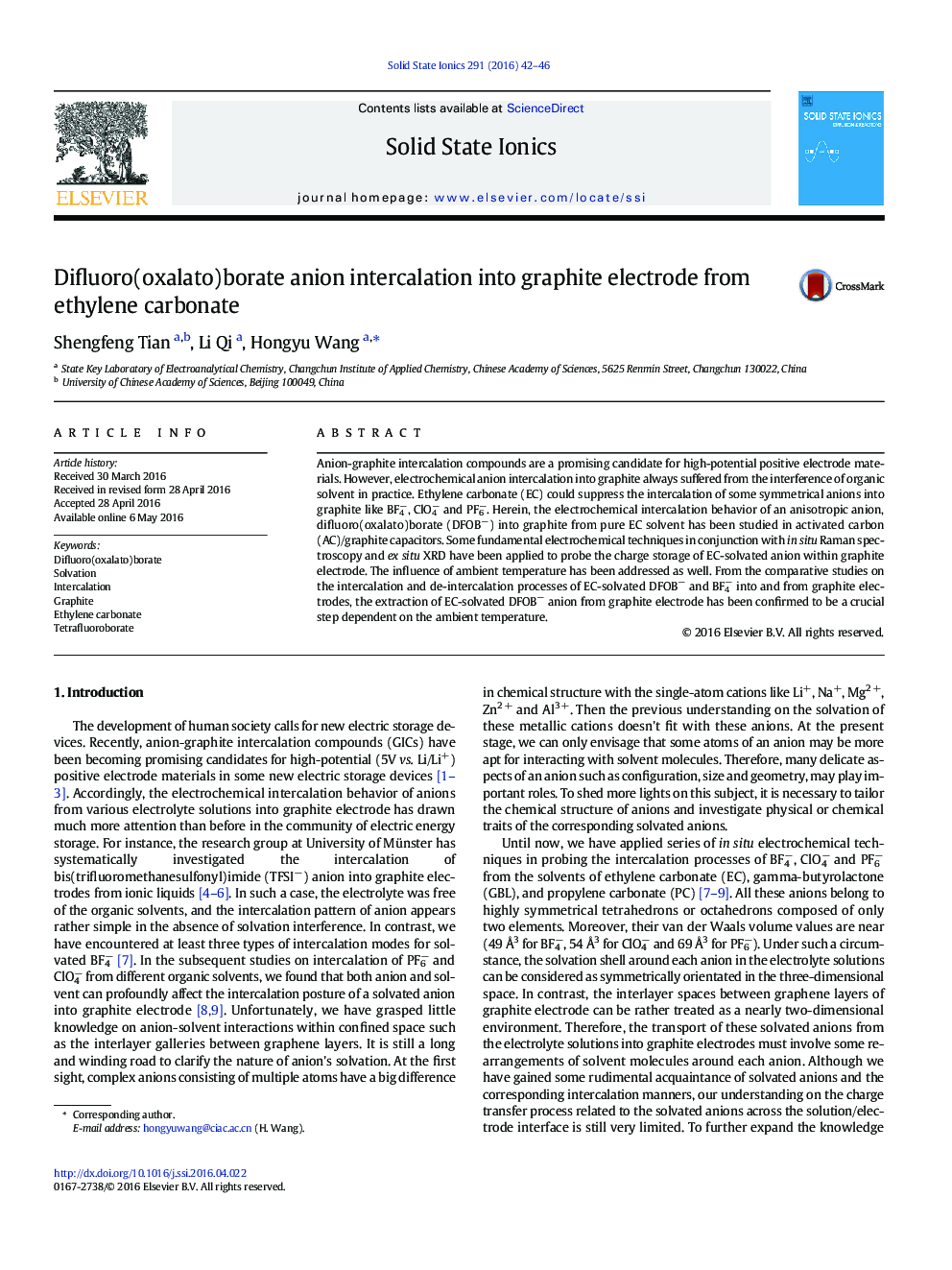| Article ID | Journal | Published Year | Pages | File Type |
|---|---|---|---|---|
| 1293322 | Solid State Ionics | 2016 | 5 Pages |
•DFOB− considerably inserts into graphite at room temperature.•EC retards DFOB− de-intercalation from graphite at room temperature.•Transport of EC-solvated DFOB− can be accelerated at elevated temperatures.•Charge–discharge of EC-solvated DFOB− are irreversible at room temperature.
Anion-graphite intercalation compounds are a promising candidate for high-potential positive electrode materials. However, electrochemical anion intercalation into graphite always suffered from the interference of organic solvent in practice. Ethylene carbonate (EC) could suppress the intercalation of some symmetrical anions into graphite like BF4−, ClO4− and PF6−. Herein, the electrochemical intercalation behavior of an anisotropic anion, difluoro(oxalato)borate (DFOB−) into graphite from pure EC solvent has been studied in activated carbon (AC)/graphite capacitors. Some fundamental electrochemical techniques in conjunction with in situ Raman spectroscopy and ex situ XRD have been applied to probe the charge storage of EC-solvated anion within graphite electrode. The influence of ambient temperature has been addressed as well. From the comparative studies on the intercalation and de-intercalation processes of EC-solvated DFOB− and BF4− into and from graphite electrodes, the extraction of EC-solvated DFOB− anion from graphite electrode has been confirmed to be a crucial step dependent on the ambient temperature.
